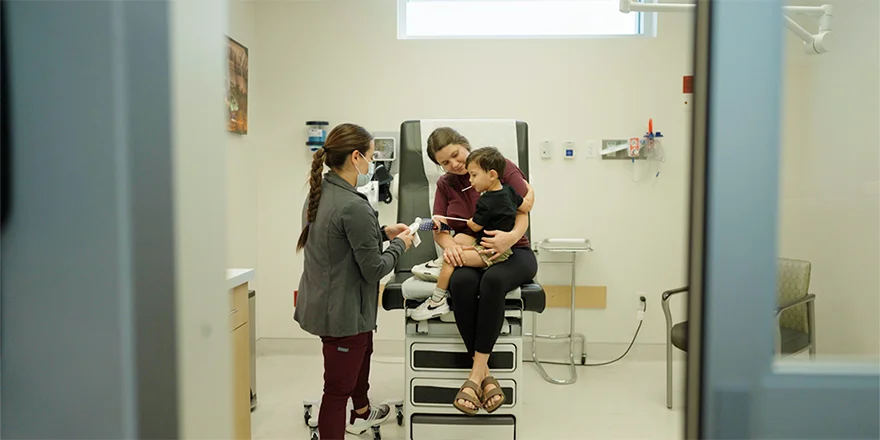Depression is a mood disorder that can have a major impact on a person’s life. The feeling of worthlessness, overwhelming sadness, or emptiness and lack of interest in hobbies or other pleasurable activities can perpetuate the feelings of despair that depression can bring. Thankfully, there are several options for those who wonder: is it depression? Through Xpress Wellness Behavioral Health, those suffering from depression can find hope and relief. Find out what depression may look like, how it’s diagnosed, and what treatment options are available once a diagnosis is made.
What is Depression?
Depression falls under the category of mood disorders, and it causes persistent feelings of sadness and lack of interest in things that were once enjoyed. Also known as major depressive disorder or clinical depression, it affects the quality of life in patients by changing the way they feel, think, and behave. Depression often causes physical pain or ailments due to inactivity. Everyday tasks are made much more difficult, or even seem impossible, when someone suffers from depression. It’s also important to note that people with clinical depression cannot “snap out of it”, and it’s not as simple as mind-over-matter.
Typical signs and symptoms of depression include:
- Feelings of: sadness, tearfulness, emptiness, hopelessness, or guilt
- Outbursts of anger, irritability, and frustration – even over small things
- Loss of interest in things once enjoyed
- Irregular sleep habits, such as insomnia or sleeping too much
- Lack of energy – to the point that small tasks are difficult
- Decreased appetite and weight loss, or increased food cravings and weight gain
- Anxiety, agitation, or restlessness
- Poor performance at work or school
- Increased or extreme sensitivity
- Avoiding social interaction
- Slowed thinking, moving, or speaking
- Dwelling on past failures or self-blame
- Difficulty concentrating, making decisions, or memory recall
- Unexplained physical pain like back or shoulder pain
It’s important to note that these feelings are sometimes a normal response to stressors that most people will encounter at some point in their lives. However, those who suffer from depression will experience these feelings or sensations most of the day, and nearly every day. Some people may not have severe symptoms of depression, but may notice that they feel unhappy or miserable in general, with no obvious cause.
In addition to the common symptoms of depression, this mood disorder can affect older adults in different, less obvious ways. Symptoms of depression in older adults can also include:
- Changes in memory and personality
- Physical aches and pains
- Fatigue, loss of appetite, and problems with sleep
- Being home-bound, with a decreased desire to be out in public or try new things
Types of Depression
In order to clarify depression types, healthcare providers may add specifiers to a patient’s depressive disorder. These specifiers mean that a patient has specific features to their depression. These include:
- Anxious distress – depression from excessive worry over things outside of one’s control
- Mixed features – depression with mania, resulting in a person having high self-esteem, talking too much, and high energy
- Melancholic features – severe form of depression with a lack of response to things that once brought enjoyment; often associated with waking too early in the morning, worsened mood in the morning, significant changes in appetite
- Atypical features – depression that may improve temporarily due to happy events, but also marked by eating and sleeping more, fear or sensitivity to rejection, and a feeling of heaviness in the arms and legs
- Psychotic features – hallucinations or delusions that accompany depression, which typically involve feelings of inadequacy or other negative feelings
- Catatonia – depression accompanied by impaired or accentuated motor activity, such as uncontrollable or purposeless movements or a fixed and inflexible posture
- Peripartum onset – depression that occurs during pregnancy or during the postpartum period
- Seasonal pattern – depression related to decreased exposure to sunlight and the change in seasons
Conditions Similar to Depression
The symptoms of depression can resemble other mental and behavioral health conditions, or physical conditions – which is why it’s crucial for a medical professional to be able to evaluate patients in order to make an accurate diagnosis. The following conditions can present with symptoms resembling major depressive disorder: [or] Several conditions may exhibit symptoms resembling major depressive disorder, including:
- Mental health disorders like anxiety or ADHD
- Other mood disorders like bipolar disorder
- Anemia
- Chronic Fatigue Syndrome (CFS)
- Diabetes
- Low thyroid (hypothyroidism)
- Low blood sugar
- Vitamin D deficiency
- Menopause (females)
- Low Testosterone (males)
- Side effects of recreational drugs, alcohol, or certain medications
How is Depression Diagnosed?
Anyone who experiences significant or persistent mental health concerns should contact their primary care provider. Depression can be mistaken for several other mental and behavioral health conditions, so patients must reach out to their healthcare provider for an accurate diagnosis. There are no specific tests for depression, but providers can evaluate patients based on medical and personal history, physical examination, and psychological questionnaires and evaluation. Lab tests may also be ordered to rule out physiological causes of a patient’s symptoms.
How is Depression Treated?
If depression is suspected or diagnosed, providers will make an appropriate treatment plan. The symptoms of depression are usually best managed with a combination of medication and psychological counseling. Medications that are used to treat depression include selective serotonin reuptake inhibitors (SSRIs), serotonin-norepinephrine reuptake inhibitors (SNRIs), atypical antidepressants, tricyclic antidepressants, monoamine oxidase inhibitors (MAOIs), or a combination of these. Behavioral counseling can be effective in rounding out the treatment plan by equipping patients with the tools they need to achieve balance in their everyday lives.
Help from Xpress Wellness Behavioral Health
At Xpress Wellness Behavioral Health, we’re more than just a brick and mortar office for sudden bumps, bruises, or seasonal illnesses. We have licensed counselors and psychologists that are able to diagnose, treat, and provide continuing care for patients with depression. Our providers can prescribe medications and offer behavioral therapy through virtual visits. Schedule a behavioral health consultation to begin a journey of overall wellness that comes from sound health – both mind and body.



